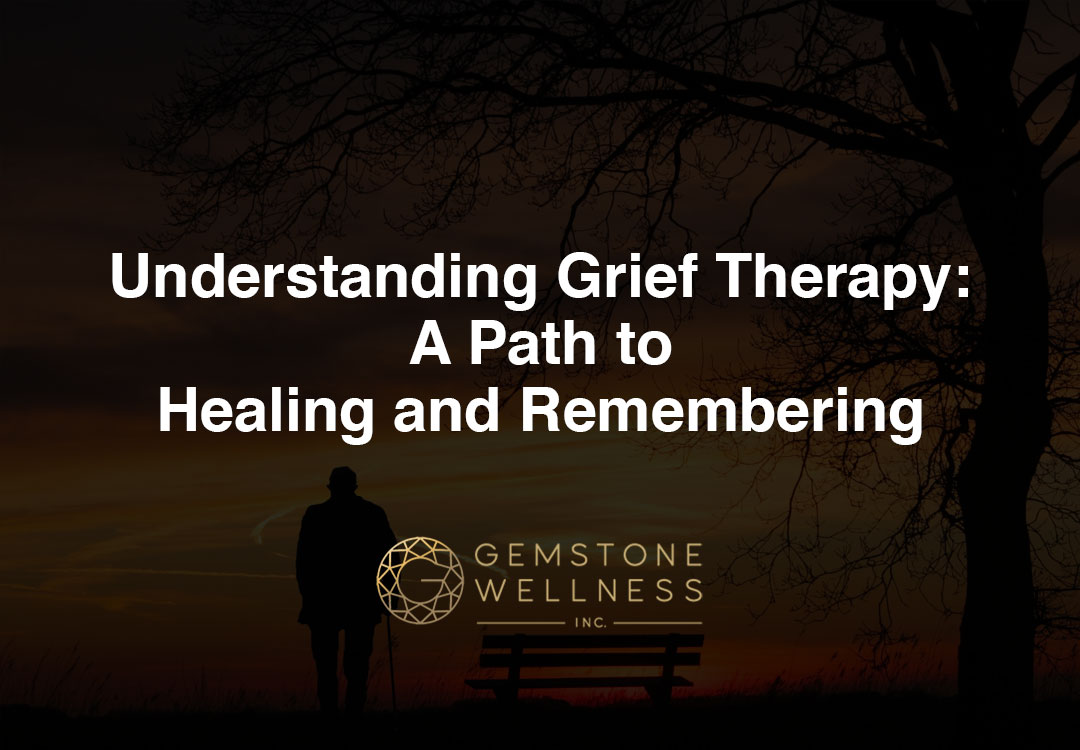In the face of grief, society often exerts pressure on individuals to “move on” or “get over” their loss. However, the truth is that true healing and closure do not necessarily entail leaving the past behind. As long as we continue to love and cherish what we have lost, grief will remain a part of our lives. This is where grief therapy steps in to offer support and guidance to those navigating the challenging terrain of loss.
What is Grief Therapy?
Grief therapy, also known as bereavement therapy, is a specialized form of counseling designed to help individuals cope with the emotional aftermath of loss. It provides a safe and empathetic space for individuals to process their grief, find ways to redefine their relationship with the person or experience they’ve lost, seek meaning from their loss, and learn how to carry the memories of their loved ones or significant events with them as they move forward in life.
Who Does Grief Therapy Help?
Grief therapy is a valuable resource for a wide range of individuals, as grief knows no boundaries and can affect anyone at any stage of life. Here are some of the groups and situations where grief therapy can be especially beneficial:
-
Bereaved Individuals: People who have lost a loved one, whether through death or the end of a significant relationship, often find solace and support in grief therapy. It helps them navigate the complex emotions and challenges associated with loss, allowing them to gradually find a new way of living without their loved one.
-
Children and Adolescents: Younger individuals may struggle to comprehend and express their grief. Grief therapy tailored to their developmental needs can provide them with tools to cope with loss and prevent long-term emotional struggles.
-
Pet Owners: The loss of a beloved pet can be just as devastating as losing a human family member. Grief therapy helps pet owners process their feelings of grief, offering a safe space to honor the bond they shared with their furry friend.
-
Community Loss: When communities face significant losses, such as natural disasters, mass tragedies, or the dissolution of tight-knit groups, grief therapy can help individuals collectively navigate their grief, rebuild, and find strength in unity.
-
Job Loss: Losing a job can be a traumatic experience, impacting one’s sense of self-worth and stability. Grief therapy can provide essential support in coping with the emotional fallout of unemployment and guide individuals toward resilience and future opportunities.
How Grief Therapy Helps
Grief therapy is a multifaceted process that tailors its approach to the unique needs of each individual and situation. Here are some key ways in which grief therapy aids in the healing process:
-
Providing a Safe Space: Grief therapy offers a non-judgmental and empathetic environment where individuals can openly express their emotions and thoughts without fear of criticism or rejection.
-
Facilitating Healing: Therapists guide individuals in understanding and processing their grief, helping them gradually accept the reality of their loss and find ways to move forward while preserving the memories and love they hold for what they’ve lost.
-
Finding Meaning: Grief therapy helps individuals seek meaning and purpose from their loss, allowing them to integrate it into their life narrative and find ways to honor the memory of their loved ones or the significance of the experience.
-
Learning to Memorialize: Rather than attempting to “move on” or forget, grief therapy encourages individuals to memorialize their loss and keep the memories alive in their hearts. This process can bring comfort and a sense of continued connection.
In conclusion, grief therapy is a vital resource for anyone grappling with the complexities of grief and loss. It offers support, guidance, and a safe space for individuals to navigate their unique journey of healing, helping them find ways to carry the memories of their loved ones or significant experiences with them as they continue their life’s journey. Grief therapy is not about “moving on” but rather about moving forward while honoring the past. It is a path towards healing, remembering, and finding hope in the face of profound loss.

